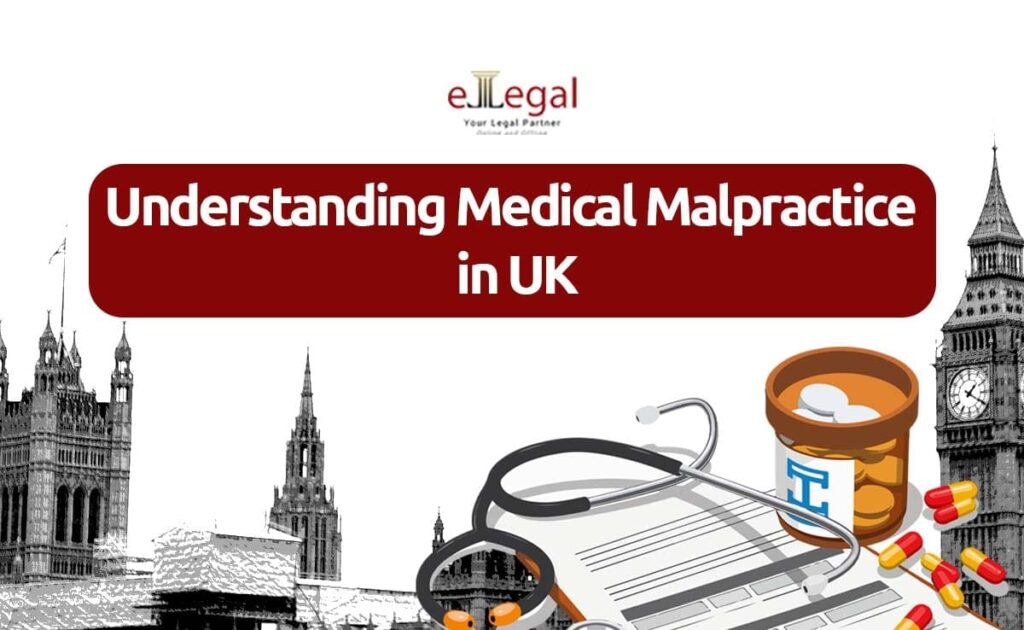The issue of medical malpractice is an important one that affects both patients and those in the healthcare field. In the UK. It includes a variety of situations where healthcare providers fail to deliver the expected level of care, resulting in patient harm or injury. This blog seeks to delve into the complex realm of medical malpractice in the UK, discussing its legal framework, key statistics, common scenarios, and how individuals can seek redress.
What is Medical Malpractice?
At its core, medical malpractice in the UK refers to instances of medical negligence where healthcare providers fail to meet the accepted standards of practice, leading to patient harm. This can occur in various healthcare settings, from hospitals to outpatient clinics, and can involve doctors, nurses, and other medical professionals
The Elements of Medical Negligence in the UK
To establish a case of medical negligence in the UK, several key elements must be demonstrated:
- Duty of Care: A legal obligation exists between the healthcare provider and the patient.
- Breach of Duty: The provider’s actions or inactions did not meet the accepted standard of care.
- Causation: The breach directly caused harm to the patient.
- Damages: The patient suffered quantifiable harm as a result of the negligence.
Understanding these elements is crucial for anyone considering a medical malpractice claim in the UK.
The Bolam test and Bolitho test
The Bolam test and Bolitho test are legal standards used in the UK to assess medical negligence.
The Bolam Test is used to determine if a healthcare professional acted according to the standards of a responsible body of medical opinion. It seeks to discover If other competent professionals would have made the same decision, the provider is generally not considered negligent
The Bolitho Test refines the Bolam test by requiring that the accepted medical opinion must also be logical and defensible. A court can reject a medical opinion if it does not make sense, even if it is widely accepted.
Together, these tests help ensure that medical professionals are held accountable based on accepted practices and rational reasoning.
Common Types of Medical Malpractice Cases in the UK
Medical malpractice cases in the UK can stem from a variety of situations. Here are some of the most frequently encountered types:
- Surgical Mistakes: Errors made during surgery can result in serious complications such as infections, unnecessary follow-up surgeries, or even fatalities. These mistakes may include leaving surgical tools inside a patient or conducting the incorrect procedure.
- Misdiagnosis or Late Diagnosis: A misdiagnosis can lead to severe repercussions. If serious illnesses like cancer are diagnosed late, it can lead to worse health outcomes and fewer treatment options.
- Injuries at Birth: Negligence during childbirth can result in significant and lasting effects for both the mother and the baby. Common problems include improper handling of delivery tools or failing to monitor the baby’s distress.
- Anesthesia Errors: Errors related to anesthesia can be catastrophic. Mistakes in dosage or failure to monitor a patient during surgery can result in serious complications or fatalities.
- Medication Errors: Prescribing the wrong medication or incorrect dosages can lead to severe side effects or even death. Medication errors are a common form of medical negligence in the UK.
Medical Malpractice Insurance in the UK
Medical malpractice insurance is a crucial component of the healthcare system. It protects healthcare providers against claims of negligence and provides financial support in the event of lawsuits.
Importance of Medical Malpractice Insurance in the UK
- Financial Protection: It shields healthcare professionals from the financial burden of legal claims.
- Professional Confidence: Knowing they are covered allows medical professionals to focus on patient care without the constant fear of litigation.
- Public Trust: Adequate insurance helps maintain public confidence in the healthcare system, knowing that providers are held accountable.
Medical malpractice insurance in the UK varies by provider and the individual needs of healthcare workers. Some common coverage aspects include:
- Legal fees for defending against claims.
- Compensation awarded to the claimant.
- Expenses related to settling claims.
Healthcare professionals should reach out to specialized insurance providers to ensure they have the right coverage for their specific positions.
The Role of Medical Malpractice Lawyers in the UK
Medical malpractice lawyers play a vital role in helping victims navigate the complex legal landscape. They provide essential support and guidance throughout the claims process.
Key Responsibilities of Medical Malpractice Lawyers
- Initial Consultation: They assess the viability of the claim and explain the legal process.
- Gathering Evidence: They collect medical records, expert opinions, and other necessary documentation to support the case.
- Negotiation: They negotiate with the defendants or their insurers to seek a fair settlement for the client.
- Litigation: If a settlement cannot be reached, they represent the client in court.
Pursuing a Medical Malpractice Claim in the UK
If you believe you have been a victim of medical negligence, taking action is crucial. Here are the steps to pursue a medical malpractice claim in the UK:
Step 1: Document Everything
Keep detailed records of your medical treatment, including dates, procedures, and any communications with healthcare providers. This information will be invaluable when building your case.
Step 2: Consult with a Medical Malpractice Lawyer
A qualified lawyer can help you understand your rights and the potential for a successful claim. Reach out to us at eLegal Consultants, we have qualified lawyers that can assess your situation and guide you through the process.
Step 3: Understand the Time Limits
In the UK, there are time limits for filing a medical malpractice claim, typically three years from the date of the incident or from when you became aware of the injury. It’s essential to act promptly.
Step 4: Gather Evidence
Your lawyer will help you gather the necessary evidence, which may include medical records, witness statements, and expert opinions.
Step 5: Alerting the Defendant
When sufficient evidence is in hand, the solicitor will dispatch a Letter of Claim to the defendant, detailing the negligence claims and the injuries incurred. The defendant will be given a timeframe to reply, either by admitting or denying their responsibility.
Step 6: Settlement Negotiation
When the defendant acknowledges their responsibility, your lawyer will step in to negotiate a settlement. This process takes into account the extent of the injuries, any financial losses incurred, and the costs associated with ongoing care. It’s common for negotiations to include multiple offers and counteroffers until both sides come to a mutual agreement.
Step: Trial
Many medical malpractice cases in the UK are settled out of court. If a fair settlement cannot be reached, your case may proceed to trial.
Conclusion
As we navigate the challenges of the healthcare system, it’s vital for patients and providers to prioritize safety and accountability. Raising awareness about medical malpractice can help us build a healthcare environment that focuses on patient care and decreases the likelihood of negligence. If you or someone you care about has been affected by medical malpractice, reaching out for legal advice as soon as possible can make a meaningful difference in your case’s outcome. We at eLegal Consultants are properly equipped with our team of qualified attorneys to help you out. Contact us now




